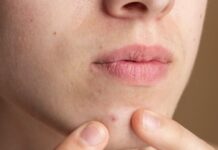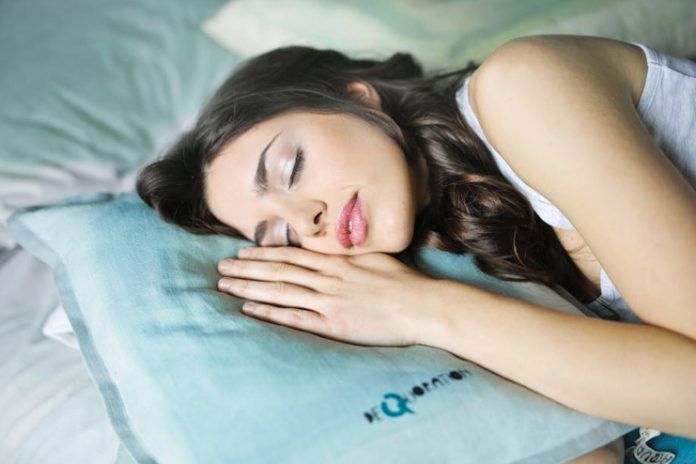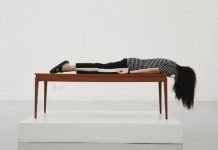Affiliate Disclaimer
Some links in this article are affiliate links. We may earn a small commission if you make a purchase through these links, at no extra cost to you. We only recommend products we find useful to our readersTired and sleepy? Does it feel like the day drags out more than it should? These kinds of instances are particularly true for people who live on little or no proper sleep throughout the day. If you have lost your night’s sleep thinking how to have better sleep, it is time to resort to some actually beneficial tips that can actually help instil a good night’s sleep without a lot of hassle.
Getting a proper night’s sleep is one of the most important aspects of making sure that the person has a good metabolism and overall well being, which, for the most part, is hampered when they suffer from lack of sleep. If you have been wondering about the tips to sleep better at night, this is the right place you have stumbled upon.
In this article, we are going to be sharing some of the scientifically proven tips that can help you sleep better without waking up in the middle of the night, staggered.

Check Out the Most Popular Self Care Tips On How To Get Better Sleep?
1. Enhance the Exposure to Bright Light During the Day
 Our body’s clock, otherwise known as the circadian rhythm, is heavily dependent on a number of factors and its functionality is what helps us catch the proper night’s sleep. When we mention that the exposure to natural bright lighting during the day can actually help in better sleep, we aren’t kidding.
Our body’s clock, otherwise known as the circadian rhythm, is heavily dependent on a number of factors and its functionality is what helps us catch the proper night’s sleep. When we mention that the exposure to natural bright lighting during the day can actually help in better sleep, we aren’t kidding.
Better and enhances exposure to bright natural light throughout the day helps boost our circadian rhythm and keeps it healthy. Not only does it instill positive energy in an individual, it also helps in ensuring better sleep at night.
Several conducted studies (R) have shown that the improved exposure to sunlight or any form of bright light during the day helped insomniac patients sleep better during the night. Not just that, research also claims that this entire process of enhances light exposure improve sleep at night by a percentage of 80% (R) which itself is spell bounding.
Try and expose yourself to bright daylight or if that is out of the question, get some bright light bulbs and such for similar kind of effects.
2. Avoid Consumption of Caffeine Late in The Day
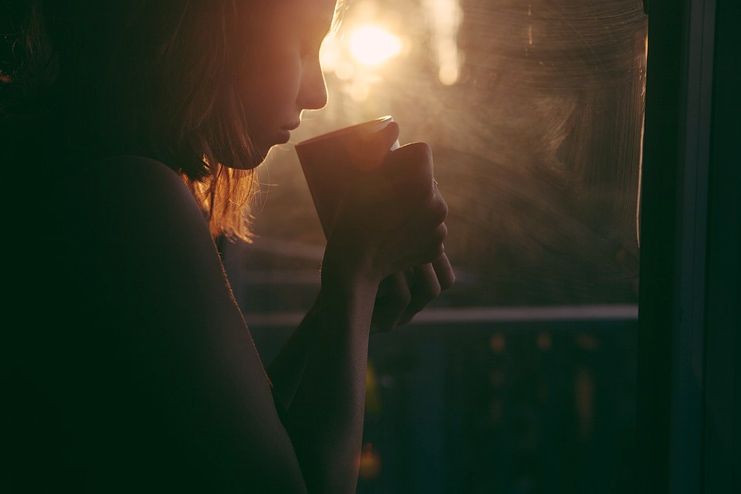 Caffeine and the kind of energy boost it gives to the body is not something that one needs a new introduction about, is it?
Caffeine and the kind of energy boost it gives to the body is not something that one needs a new introduction about, is it?
While the consumption of a steaming mug of coffee might be a very enticing offer in the morning as it helps boost your energy and help you get on with the day, the same during the later time in day or even in the evening can be a contributing factor as to why you are unable to have a proper night’s sleep (R).
The caffeine in the coffee ends up stimulating the nervous system to an extent that it becomes hard to bring the body rhythm back to a relaxed mode for it to have a proper night’s sleep. In a conducted study (R), it was found that the consumption of coffee a minimum of 6 hours before sleep aggravated one’s sleep even more.
So, if you have problems with your sleeping cycle, or generally suffer from insomnia, drinking coffee late in the day might not be a very favourable option. Try and limit the caffeine consumption to the days only.
3. Reduce the Blue Light Exposure (Especially After Sunset)
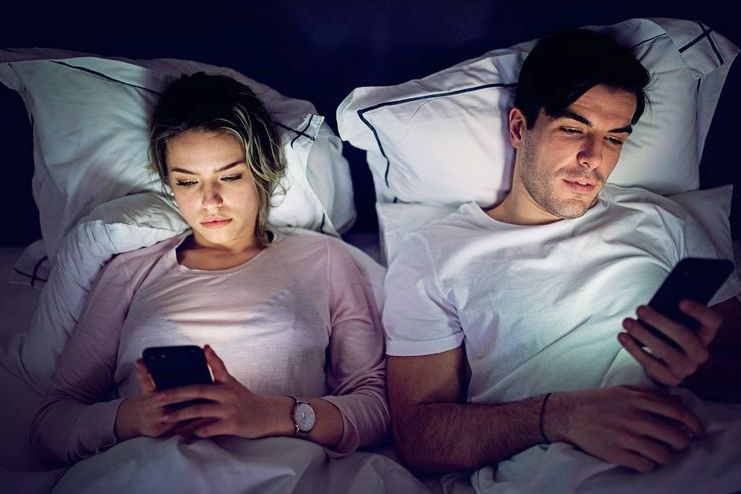
While the exposure to bright natural light during the daytime is something that’s encouraged, the same after sunset is not something favourable for your sleep cycle. If you struggle to have a good night’s sleep, limiting your exposure to blue light (R) may actually be beneficial.
When the body is subjected to excessive blue light during the night time, it hinders with the circadian rhythm, making it think that it is daytime when in reality, it is quite the opposite. This ends up hindering the steady release of the hormone, melatonin (R), which is responsible for the inducing sleep in an individual and in relaxing the body.
If you want to induce some sleep, make sure to get yourself protected from the harmful projections of the blue light. Wear a pair of blue light blocking glasses or even get the blue light blocking apps on your laptop and smartphones. Try and limit watching TV or even being on the phones and laptops way into the night.
4. Maintain a Sleep Schedule
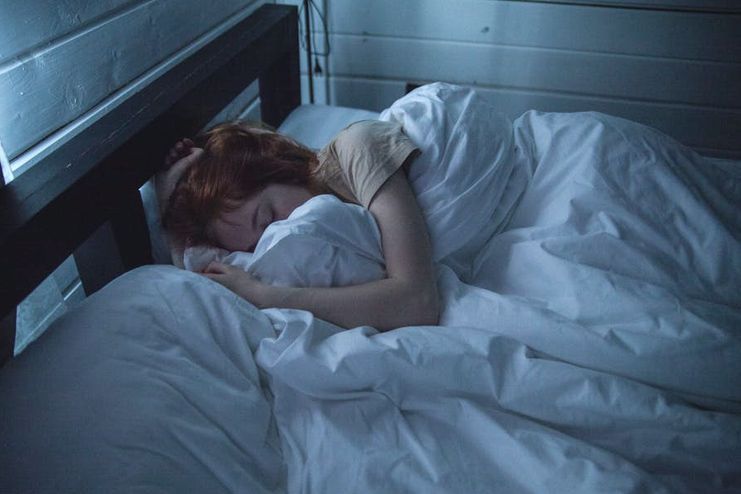 Have you heard the phrase, “Go to sleep early and you’ll be able to wake up early.” This is a common phrase used by the majority of mothers on their children. As much as it might not be that pleasant to hear, having a consistent sleeping schedule actually does help in bettering the overall circadian rhythm.
Have you heard the phrase, “Go to sleep early and you’ll be able to wake up early.” This is a common phrase used by the majority of mothers on their children. As much as it might not be that pleasant to hear, having a consistent sleeping schedule actually does help in bettering the overall circadian rhythm.
Going to bed at irregular times and waking up later than usual often tends to end up causing problems with one’s overall sleeping schedule (R). The irregularity of the sleeping cycle sometimes often hampers the overall circadian rhythm and ends up altering the secretion of melatonin as well, causing insomnia.
Try and going to bed at a specific time and waking up at a specific time to bring a rhythm (R) and cycle to your body’s clock. This often ends up getting rid of the lack of sleep and actually makes you feel healthy and fresh.
5. Get Rid of Taking Long Daytime Naps
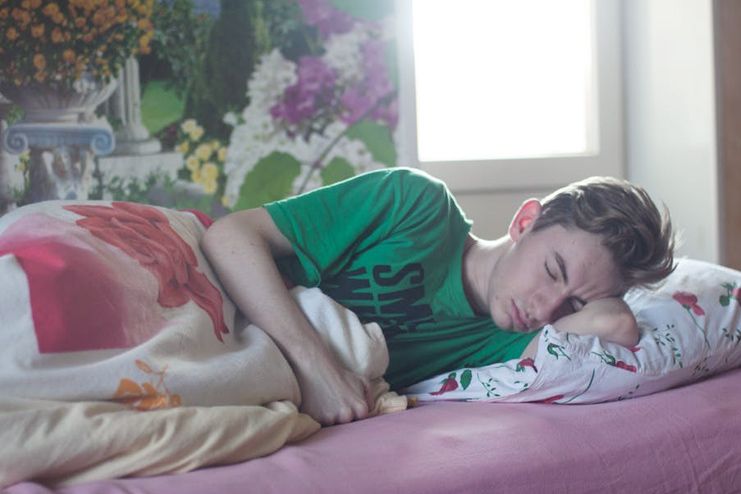 No, we are not talking about the short power naps which actually do help in boosting energy and helping you get on with the day, I am here stating the problems related to long daytime naps and that too for irregular time periods.
No, we are not talking about the short power naps which actually do help in boosting energy and helping you get on with the day, I am here stating the problems related to long daytime naps and that too for irregular time periods.
When you sleep for extended periods of time during the day, it tends to confuse the internal body clock (R), making it think that its night which ends up making you struggle to get a peaceful night of sleep.
While short naps of 30 minutes or less can actually benefit you by sharpening your brain (R) functions, longer daytime naps negatively affect your body clock and hampers your sleep during the night. With that being said, these kind of possibilities are also variant from person to person, so if you are someone who takes long daytime naps and don’t suffer from sleeping problems during the night, it’s all good for you them.
6. Melatonin Supplements Help Too

Melatonin is possibly one of the most important, if not the most important hormones that is related to the overall sleep cycle and functionality of an individual. The lack of secretion of it is what often times end up causing disruption in your sleeping schedule.
Visit a doctor and get some over the counter Melatonin supplements prescribed to you. The consumption of these supplements helps to regularize the secretion of the hormone, thereby helping relax and calm the body (R) down for a good night’s sleep.
The standard dosage is often suggested to be around 1-5 mg per day. It is always best to pop a pill inside your mouth at least an hour before you are planning to go to bed.
7. Try and Minimize Alcohol Consumption
 If you have been finding it hard to get a good night’s sleep, it is best to simply just cut down on the alcohol consumption because it tends to aggravate the situation even further.
If you have been finding it hard to get a good night’s sleep, it is best to simply just cut down on the alcohol consumption because it tends to aggravate the situation even further.
Not only does it alter the production and secretion of melatonin (R) in the body, it also ends up worsening the situations related to sleep apnea (R) or someone who has a very bad sleeping pattern.
Apart from all of this, a study also pinpointed how the consumption of alcohol tends to hinder the smooth release of the growth hormone (R) during the nighttime which is also what tends to aggravate the circadian rhythm of the body.
8. Get Some House Plants
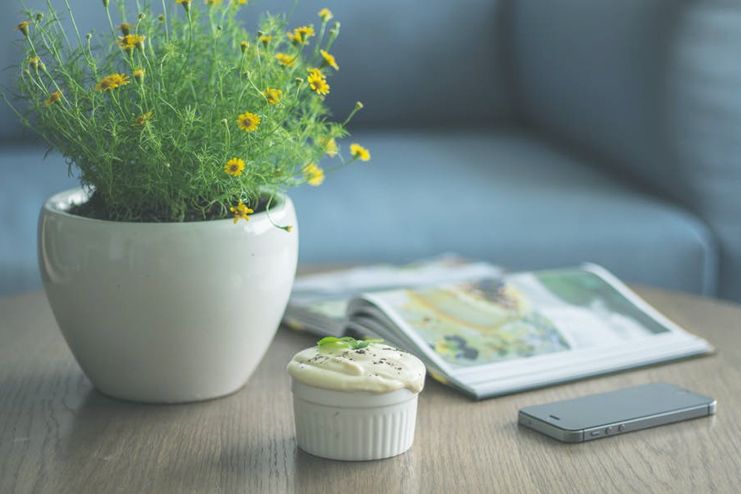 One of the most effective ways to improve sleep at night is to get some houseplants installed in your bedroom. Plants are very helpful for situations concerning insomnia which is why it is best to get some plants that would not just serve as a decoration but help you sleep better at night naturally.
One of the most effective ways to improve sleep at night is to get some houseplants installed in your bedroom. Plants are very helpful for situations concerning insomnia which is why it is best to get some plants that would not just serve as a decoration but help you sleep better at night naturally.
Some of the effective plants that have an amazing role in inducing sleep in patients suffering from insomnia include lavender, jasmine, snake plant, English ivy, Valerian etc. These plants helps purify the air and reduce the levels of carbon dioxide in the air which helps contribute to a healthier well being for an individual.
9. Regulate the Bedroom Temperature
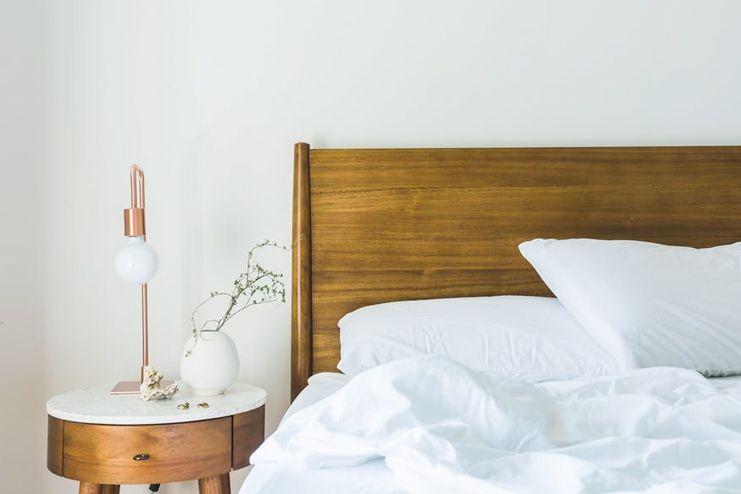 Before you end up thinking profanities, let us clarify what this is all about. Many people are not aware of the fact that the temperature plays a very crucial role in our sleeping schedules. There needs to be a harmony between the body and the room temperature for a person to get some proper sleep during the night.
Before you end up thinking profanities, let us clarify what this is all about. Many people are not aware of the fact that the temperature plays a very crucial role in our sleeping schedules. There needs to be a harmony between the body and the room temperature for a person to get some proper sleep during the night.
As one study (R) shows, the temperature of the bedroom is more considerable for hampering sleep in comparison to the loud noises.
High temperatures than normal tend to be one of the sole reasons behind a poor quality of sleep. So, if this is a factor that’s been bothering you, try and regulate the room temperature of your bedroom to keep it optimum so that there’s nothing hampering your sleep.
The optimum temperature for sleeping is considered to be 20°C.
10. Avoid Late Evening Eating
 Eating late in the evening tends to hamper the overall release of melatonin and as well as growth hormone (R), two of the most important hormones that help induce sleep in an individual.
Eating late in the evening tends to hamper the overall release of melatonin and as well as growth hormone (R), two of the most important hormones that help induce sleep in an individual.
That being said, eating a high carbohydrate meal late in the evening often does quite the opposite of that. If you have been wondering about things to help you sleep better at night, try and gorge down some high carb food and you will knock yourself out in no time.
This is mainly because the high carb diet tends to affect the hormone tryptophan (R) which is what makes you feel droopy and tired.
11. A Relaxing Bath Might Do The Trick
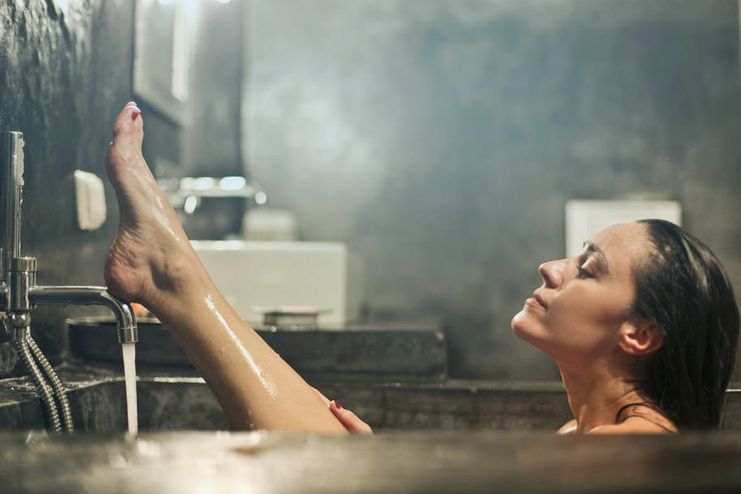 Warm showers and bath are a great way to get rid of all the building stress. It is believed that taking a bath is one of the best home remedies for better sleep.
Warm showers and bath are a great way to get rid of all the building stress. It is believed that taking a bath is one of the best home remedies for better sleep.
These are not just practical assumptions but factual purposes because the same has been proved in a number of researches and studies (R). If you are not a big fan of taking baths during the night, soak your feet in warm water (R) and even that should do the trick just as fine.
[Also Read Bad Shower Habits You Must Avoid]
12. Comfortable Bed and Mattress
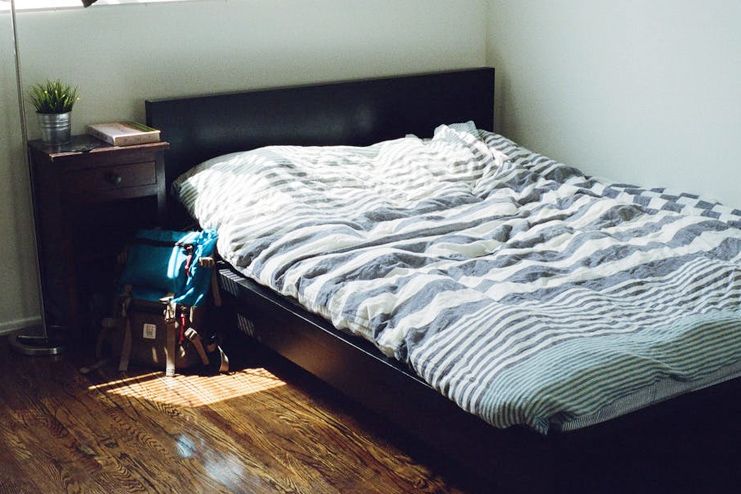 Comfortable beds and mattresses are two of those components that make all the difference. If you have been suffering from a stiff mattress or a small bed frame, it is time to switch to a comfortable one.
Comfortable beds and mattresses are two of those components that make all the difference. If you have been suffering from a stiff mattress or a small bed frame, it is time to switch to a comfortable one.
Comfortable mattresses tend to reduce the back pain and stiffness (R) and also help n increasing one’s sleep quality by a whopping 60%. If you have been stuck with the same bed and mattress for years now, it could very well be a contributing reason to your lack of sleep at night.
Switch up the mattress and bed for comfortable ones (R) and that should do it for you.
How to have better sleep more or less depends on you and the kind of lifestyle that you lead. If you have been persistently doing things that have been reverting you to bad sleeping schedules, it is time to let them go and opt for the mentioned tips for good sleep.

